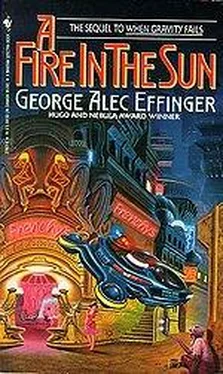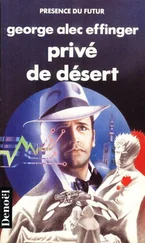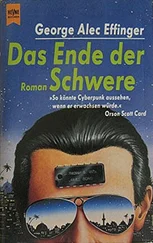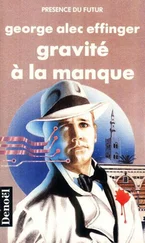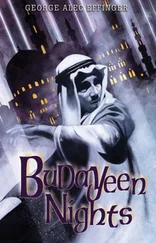George Effinger - A Fire in the Sun
Здесь есть возможность читать онлайн «George Effinger - A Fire in the Sun» весь текст электронной книги совершенно бесплатно (целиком полную версию без сокращений). В некоторых случаях можно слушать аудио, скачать через торрент в формате fb2 и присутствует краткое содержание. Год выпуска: 1989, ISBN: 1989, Издательство: Bantam Books, Жанр: Киберпанк, на английском языке. Описание произведения, (предисловие) а так же отзывы посетителей доступны на портале библиотеки ЛибКат.
- Название:A Fire in the Sun
- Автор:
- Издательство:Bantam Books
- Жанр:
- Год:1989
- ISBN:0-385-26324-4
- Рейтинг книги:4 / 5. Голосов: 1
-
Избранное:Добавить в избранное
- Отзывы:
-
Ваша оценка:
- 80
- 1
- 2
- 3
- 4
- 5
A Fire in the Sun: краткое содержание, описание и аннотация
Предлагаем к чтению аннотацию, описание, краткое содержание или предисловие (зависит от того, что написал сам автор книги «A Fire in the Sun»). Если вы не нашли необходимую информацию о книге — напишите в комментариях, мы постараемся отыскать её.
Nominated for Hugo Award for Best Novel in 1990.
A Fire in the Sun — читать онлайн бесплатно полную книгу (весь текст) целиком
Ниже представлен текст книги, разбитый по страницам. Система сохранения места последней прочитанной страницы, позволяет с удобством читать онлайн бесплатно книгу «A Fire in the Sun», без необходимости каждый раз заново искать на чём Вы остановились. Поставьте закладку, и сможете в любой момент перейти на страницу, на которой закончили чтение.
Интервал:
Закладка:
We both got into the patrol car, but neither of us said anything for a while.
Shaknahyi cruised back down the Street and out of the Budayeen. Curiously, I was no longer wary of being spotted in the copcar by any of my old friends. In the first place, the way they’d been treating me, I figured the hell with ’em. In the second place, I felt a little different now that I’d been fried in the line of duty. The experience at the Fee Blanche had changed my thinking. Now I appreciated the risks a cop has to take day after day.
Shaknahyi surprised me. “You want to stop somewhere for lunch?” he asked.
“Sounds good.” I was still pretty weak and the sunnies had left me a little lightheaded, so I was glad to agree.
“There’s a place near the station house we sometimes go to.” He punched the siren and made some fast time through the traffic. About a block from the beanery, he turned off the horn and glided into an illegal parking place. “Police perks,” he said, grinning at me. “There ain’t many others.”
When we got inside, I was pleasantly surprised. The cookshop was owned by a young Mauretanian named Meloul, and the food was pure Maghrebi. By bringing me here, Shaknahyi more than made up for the pain he’d caused me earlier. I looked at him, and suddenly he didn’t seem like such a bad guy.
“Let’s grab this table,” he said, picking one far from the door and against a wall, where he could watch the other customers and keep an eye on what was happening outside too.
“Thanks,” I said. “I don’t get food from home very often.”
“Meloul,” he called, “I got one of your cousins here.”
The proprietor came over, carrying a stainless steel pitcher and basin. Shaknahyi washed his hands carefully and dried them on a clean white towel. Then I washed my hands and dried them on a second towel. Meloul looked at me and smiled. He was about my age, but taller and darker. “I am Berber,” he said. “You are Berber too, yes? You are from Oran?”
“I’ve got a little Berber blood in me,” I said. “I was born in Sidi-bel-Abbes, but I grew up in Algiers.”
He came toward me, and I stood up. We exchanged kisses on the cheek. “I live all my life in Oran,” he said. “Now I live in this fine city. Sit down, be comfortable, I bring good food to you and Jirji.”
“The two of you got a lot in common,” said Shaknahyi.
I nodded. “Listen, Officer Shaknahyi,” I said, “I want to—”
“Call me Jirji. You slapped on that goddamn moddy and followed me into Gargotier’s. It was stupid, but you had guts. You been initiated, sort of.”
That made me feel good. “Yeah, well, Jirji, I want to ask you something. Would you say you were very religious?”
He frowned. “I perform the duties, but I’m not gonna go out on the street and kill infidel tourists if they don’t convert to Islam.”
“Okay, then maybe you could tell me what this dream means.”
He laughed. “What kind of dream? You and Brigitte Stahlhelm in the Tunnel of Love?”
I shook my head. “No, nothing like that at all. I dreamed I met the Holy Prophet. He had something to tell me, but I couldn’t understand it.” I related the rest of the vision Wise Counselor had created for me.
Shaknahyi raised his eyebrows, but he said nothing for a few moments. He played with the ends of his mustache as he thought. “Seems to me,” he said finally, “it’s about simple virtues. You’re supposed to remember humility, as Prophet Muhammad, blessings and peace be upon him, remembered it. Now’s not the time for you to make great plans. Later maybe, Allah willing. That make any sense to you?”
I kind of shivered, because as soon as he said it, I knew he was right. It was a suggestion from my backbrain that I shouldn’t worry about handling my mother, Umm Saad, and Abu Adil all by myself. I should take things slowly, one thing at a time. They would all come together eventually. “Thanks, Jirji,” I said.
He shrugged. “No thanks are necessary.”
“I bring you good food,” said Meloul cheerfully, setting a platter between Shaknahyi and me. The mounded-up couscous was fragrant with cinnamon and saffron, and it made me realize just how hungry I was. In a well in the middle of the ring of couscous, Meloul had piled bite-sized pieces of chicken and onions browned in butter and flavored with honey. He also brought a plate of bread and cups of strong black coffee. I could hardly keep myself from diving right in.
“It looks great, Meloul,” said Shaknahyi.
“May it be pleasant to you.” Meloul wiped his hands on a clean towel, bowed to us, and left us to our meal.
“In the name of Allah, the Compassionate, the Merciful,” Shaknahyi murmured.
I offered the same brief grace, arid then allowed myself to scoop up a chunk of chicken and some of the couscous. It tasted even better than it smelled.
When we’d finished, Shaknahyi called for our bill. Meloul came to the table, still smiling. “No charge. My countrymen eat for free. Policemen eat for free.”
“That’s kind of you, Meloul,” I said, “but we’re not allowed to accept—”
Shaknahyi drank the last of his coffee and put down his cup. “It’s all right, Marid,” he said, “this is different. Meloul, may your table last forever.”
Meloul put his hand on Shaknahyi’s shoulder. “May God lengthen your life,” he said. He hadn’t turned a copper fiq on our patronage, but he looked pleased.
Shaknahyi and I left the cookshop well fed and comfortable. It seemed a shame to spoil the rest of the afternoon with police work.
An old woman sat begging on the sidewalk a few yards from Meloul’s. She was dressed in a long black coat and black kerchief. Her sun-darkened face was deeply scored with wrinkles, and one of her sunken eyes was the color of milk. There was a large black tumor just in front of her right ear. I went up to her. “Peace be upon you, O Lady,” I said.
“And upon you be peace, O Shaykh,” she said. Her voice was a gritty whisper.
I remembered that I still had the envelope of money in my pocket. I took it out and opened it, then counted out a hundred kiam. It hardly made a dent in my roll. “O Lady,” I said, “accept this gift with my respect.”
She took the money, astonished by the number of bills. Her mouth opened, then shut. Finally she said, “By the life of my children, you are more generous than Haatim, O Shaykh! May Allah open His ways to you.” Haatim is the personification of hospitality among the nomad tribesmen.
She made me feel a little self-conscious. “We thank God every hour,” I said quietly, and turned away.
Shaknahyi didn’t say anything to me until we were sitting in the patrol car again. “Do that a lot?” he asked.
“Do what?”
“Drop a hundred kiam on strangers.”
I shrugged. “Isn’t alms-giving one of the Five Pillars?”
“Yeah, but you don’t pay much attention to the other four. That’s odd too, because for most people, parting with cash is the toughest duty.”
In fact, I was wondering myself why I’d done it. Maybe because I was feeling uncomfortable about the way I’d been treating my mother. “I just felt sorry for that old woman,” I said.
“Everybody in this part of the city does. They all take care of her. That was Safiyya the Lamb Lady. She’s a crazy old woman. You never see her without a pet lamb. She takes it everywhere. She lets it drink from the fountain at the Shimaal Mosque.”
“I didn’t see any lamb.”
He laughed. “No, her latest lamb got run over by a shish kebab cart a couple of weeks ago. Right now she has an imaginary lamb. It was standing there right beside her, but only Safiyya can see it.”
“Uh yeah,” I said. I’d given her enough to buy herself a couple of new lambs. My little bit to alleviate the suffering of the world.
Читать дальшеИнтервал:
Закладка:
Похожие книги на «A Fire in the Sun»
Представляем Вашему вниманию похожие книги на «A Fire in the Sun» списком для выбора. Мы отобрали схожую по названию и смыслу литературу в надежде предоставить читателям больше вариантов отыскать новые, интересные, ещё непрочитанные произведения.
Обсуждение, отзывы о книге «A Fire in the Sun» и просто собственные мнения читателей. Оставьте ваши комментарии, напишите, что Вы думаете о произведении, его смысле или главных героях. Укажите что конкретно понравилось, а что нет, и почему Вы так считаете.
